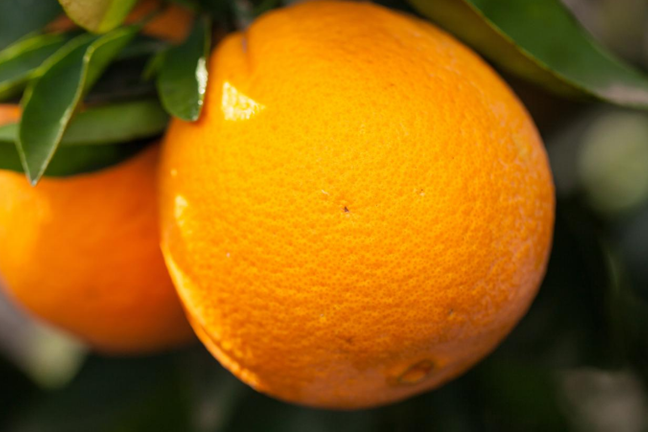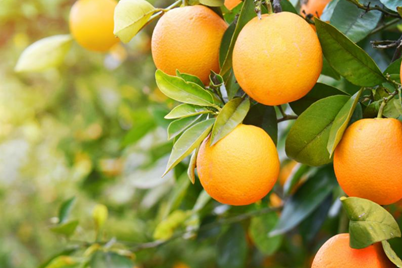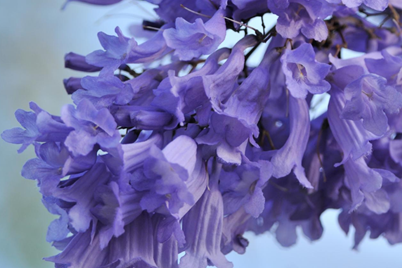Navel oranges are so named because they have what looks like a strange little belly-button on the base of the fruit. There are a few varieties of navel oranges, including Washington, Lane's Late, Cara and Navelina, and different varieties ripen during different months, predominantly in winter and spring.

Brightly coloured Washington Navel oranges are dripping from trees during winter, Lane's Late Navel from late winter to early spring and Navelina is an early variety that is ready from mid to late May. By growing a few different varieties of navel oranges you can be harvesting for many months. They're sweet and juicy, most navels are seedless, and they are a fantastic orange to grow at home. Dwarf varieties of navels grow to around 1.5m tall, so they're easy to maintain (and you don't need a ladder to harvest!) as well as being perfect for growing in a container.
To get the best out of home grown navel oranges, find a sunny spot that receives at least 6 hours of sunshine a day with well-drained soil. Navel oranges prefer growing in a temperate or sub-tropical climate, though will also handle cooler locations. If you're growing a navel orange in a container, choose a dwarf variety, use a pot that's at least 40cm in diameter, such as a Yates® Tuscan pot, and fill with good quality potting mix like Yates Premium Potting Mix.
Feeding citrus regularly is the key to promoting the best possible harvest. Citrus are very hungry plants! Yates Thrive® Citrus Liquid Plant Food is a complete plant food that has been specially formulated to provide citrus with the nutrients they need. Apply Yates Thrive Citrus Liquid Plant Food every one to two weeks during spring while citrus trees are busy growing new foliage and flowering.
Planting Tip: When planting a new navel orange tree into the ground, mix some Yates® Dynamic Lifter® Soil Improver & Plant Fertiliser into the bottom of the planting hole. Yates Dynamic Lifter improves the quality of the soil and supplies the newly planted orange with gentle, organic nutrients as it establishes.







